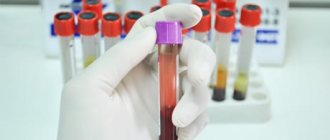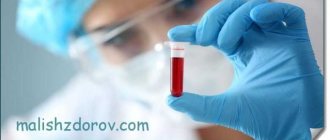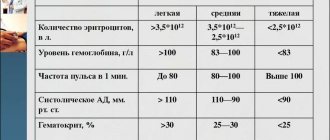Blood is the most important internal environment of the body, the pathologies of which disrupt the functioning of all organ systems. When signs of blood thickening appear against the background of a wide range of diseases, the risk of developing severe cardiovascular complications increases significantly.
There are many means to reduce blood viscosity, the safest of which are medicinal plants.
Some herbs actually have a proven ability to thin human blood and also effectively prevent the formation of blood clots. In this article, we will provide a list of the most effective ones.
Before starting herbal medicine, it is recommended to carefully study the list of all contraindications in which treatment may cause harm.
Let's remember that in the last article we looked at 7 herbs that thicken the blood →
Possible causes of blood thickening
Increased platelet aggregation and coagulation is an extremely dangerous condition, in which the risk of developing fatal vascular complications (myocardial infarction, stroke, thromboembolism of the branches of the pulmonary arteries, etc.) increases several tens of times.
The pathologies leading to this condition in both men and women include:
- Dehydration. It is observed against the background of infectious intestinal diseases (salmonellosis, dysentery) and acute intestinal poisoning.
- Intestinal juice enzyme deficiency . Decreased digestion of food provokes a decrease in oncotic pressure in the intestinal lumen and loss of water and electrolytes.
- Lipid profile pathologies. Increased levels of total cholesterol and atherogenic lipids (TAG, LDL and VLDL) are a leading risk factor for thrombosis.
- Reduced content of important vitamins and microelements in the body (selenium, zinc, vitamin C, lecithin).
- Radiation sickness. The phenomena of this rare disease occur during massive exposure to radiation.
- Increased consumption of animal fats. As a result, excessive amounts of fatty acids circulate in the plasma, which reduce the sensitivity of insulin receptors. Glucose levels increase compensatoryly, which increases coagulation
- Diabetes mellitus type I and II.
- Hypoxia. Develops with carbon dioxide poisoning and pulmonary failure.
- Antiphospholipid syndrome. Antibodies are produced against the body's own cells (cell wall phospholipids). Long-term exposure to platelets and vascular intima increases the coagulation properties of blood several times.
- Critical impairment of liver function (cirrhosis).
- Polycythemia (increased production of formed elements or inhibition of their utilization, for example, with spleen insufficiency).
- Myeloma and a number of malignant proliferative pathologies.
- Varicose veins of the lower extremities and other diseases accompanied by a decrease in the intensity of venous blood flow.
- Burn damage to a large surface area of the body. At the same time, plasma with electrolytes sweats through open wound defects and the viscosity increases.
An increase in the concentration of non-liquid substances in the plasma is a severe deviation. If you do not contact a specialist in a timely manner or receive inadequate treatment, it can lead to disability or death.
Scientists also identify a number of risk factors for the development of the described pathology:
- sedentary lifestyle;
- obesity of any degree;
- abuse of bad habits (smoking, drug use);
- frequent exposure to stress and other psycho-emotional stress.
Why thin the blood?
Blood density can lead to serious disruptions in the functioning of the entire body. Diseases such as
- varicose veins;
- hypertension – increased blood pressure;
- thrombophlebitis;
- atherosclerosis;
- hemorrhagic/ischemic stroke;
- myocardial infarction.
There are several ways to reduce blood viscosity:
- revision of the nutrition plan. Care must be taken to include foods in the diet that will help thin the blood in the veins;
- use of medications;
- herbal treatment.
Before giving your preference to any treatment method, you should definitely consult a medical specialist!
How effective is herbal medicine?
It is necessary to understand that not a single medicinal plant has undergone large clinical trials regarding its ability to thin thick blood. Knowledge about the effectiveness of most herbs in relation to pathologies such as blood thickening is based on the results of the use of herbs by traditional healers and the practical experience of individual doctors.
An extremely common mistake is attributing effects to herbs, berries, vegetables and fruits, and other products based on the components of their composition. The active substances are contained in extremely small quantities and cannot even come one step closer to the pharmacological effects of medications included in the list of national recommendations, treatment protocols and other official medical information. This is what doctors are currently working on. If medicines are of plant origin, then the content of active substances is hundreds and even thousands of times greater than that of plants.
Expert commentary
Kardash Anton Borisovich
Therapist, cardiologist. Doctor of the highest category.
Thus, in case of serious pathologies of hemostasis, herbal medicines should not be used as the only method of treatment. It is necessary to consult a specialist and take herbal substances as an additional method of therapy.
What diseases cause blood to be too thick?
The thickness of blood depends on the ratio of its main components - liquid plasma and blood cells (erythrocytes, platelets, leukocytes), which give it viscosity.
The slow flow of blood through the veins leads to the gluing of red blood cells and, as a result, the formation of red blood clots, which, if left untreated, can clog the main vessels of the lower extremities, causing varicose veins
When plasma volume decreases or the number of formed elements increases, the balance of blood density and viscosity is disrupted; this phenomenon in medicine is called hypercoagulation - increased blood clotting.
It should be noted that thick blood is not a disease, but if this syndrome is not eliminated in time, pathological changes in organs will begin to occur in the body, sometimes irreversible.
The main reason for a decrease in the amount of plasma in the blood is often dehydration, so the body tries to compensate for the lack of moisture under conditions:
- drinking disorders;
- overheating of the body;
- burns;
- viral diseases.
If blood viscosity is caused by increased production of formed elements, the cause may be either temporary physiological changes in the body or serious diseases of the internal organs.
- An increase in platelet count can be influenced by:
- pathologies of the liver and kidneys, such as polycystic disease, cirrhosis, osteomyelofibrosis;
- infectious diseases of viral and bacterial origin;
- spleen dysfunction;
- anemia;
- parasite infection;
- disorders of bone marrow activity;
- pregnancy;
- taking medications - corticosteroids, adrenaline, hormonal contraceptives.
- Red blood cells increase due to:
- oxygen deficiency due to diphtheria, whooping cough, pulmonary failure;
- long stay in mountainous areas with thin air;
- tumors of the kidneys, endocrine system, brain;
- erythremia;
- myeloid leukemia;
- heart failure.
- An increased number of leukocytes is diagnosed in the following cases:
- stress;
- physical exercise;
- allergic reactions;
- infectious diseases;
- Vaquez-Osler disease;
- leukocytosis.
Slow movement of blood flow through the vessels leads to clumping of red blood cells and platelets, blockage of capillaries and contributes to the development of stroke, varicose veins, thrombophlebitis, angina pectoris, atherosclerosis, hypertension and other cardiovascular diseases.
Increased blood viscosity increases the risk of heart attacks as the heart works harder to push out the thick substance.
Contraindications and precautions
It is not recommended to independently take herbal remedies that can affect rheological properties without prior consultation with a doctor in the presence of conditions such as:
- Pregnancy and breastfeeding period. During gestation, the active substances of herbs easily penetrate the placenta and lead to critical bleeding in the body of the unborn child.
- Acute inflammatory diseases of the gastrointestinal tract caused by pathogenic microorganisms.
- Gastritis with high acidity and erosive.
- Peptic ulcer of the stomach and duodenum.
- Any menstrual irregularities, including amenorrhea.
- Individual hypersensitivity to components of herbal remedies.
- Thrombophilia.
- Hemorrhagic diathesis.
- Leukemia of any etiology.
- Liver damage with decreased activity of protein synthesis (hepatitis, fatty hepatosis, etc.).
Under no circumstances should the above-described medications be used together with any anticoagulants or antiplatelet agents. It has been proven that when using warfarin with coumarin or acetylsalicylic acid, even in small quantities, the effect of the former increases by 1.5-2 times. This provokes multiple bleeding, which can cause death.
Products that reduce blood viscosity
You can also prevent the formation of blood clots with proper nutrition. Foods rich in Omega-3 fatty acids, containing salicylic acid, tocopherol (vitamin E) and iodine, have an anticoagulant effect.
The following foods contain salicylic acid:
- red berries - raspberries, strawberries, cranberries, cherries, red currants, white currants, black grapes;
- citrus fruits - oranges, grapefruits, limes, tangerines, lemons (the most effective salicylates);
- vegetables - cucumbers, tomatoes, red bell peppers, onions, garlic, beets, carrots, ginger, hot peppers.
Apples, gooseberries, prunes, and dry red wine in moderation are useful.
Omega acids and vitamin E are rich in:
- vegetable oils (cold-pressed olive oil is especially useful);
- nuts - walnuts, hazelnuts, cashews, peanuts and sunflower seeds, pumpkin;
- seafood, white and red fish.
To provide the body with iodine, you need to add seaweed to your diet.
Overview of Traditional Methods
To thin the blood, patients are most often prescribed anticoagulants that reduce platelet coagulation and fibrin synthesis. Drugs can have a direct or indirect effect. The first group includes heparin and all its derivatives (“Thrombophob”, “Lavenum”, “Lioton”).
The group of indirect anticoagulants includes drugs such as Sinkumar, Warfarin, and Phenyllin. The medications have a prolonged effect and are extremely effective, but require close medical supervision due to the high frequency of complications (bleeding).
No less widespread are antiplatelet agents that can prevent platelet aggregation:
- "Cardiomagnyl";
- "Courantil";
- "Apecard";
- "Acetylsalicylic acid".
Expert commentary
Kardash Anton Borisovich
Therapist, cardiologist. Doctor of the highest category.
One of the safest medications is Cardiomagnyl. It is strictly forbidden to start using the described medications on your own. Such actions can lead to serious consequences.
When starting to take medications, the “benefit-harm” indicator is assessed. In addition to bleeding, complications such as:
- dyspeptic disorders (nausea, vomiting, bloating);
- atrophy of the gastric mucosa with the development of anemia associated with deficiency of vitamin B12 and folic acid;
- liver dysfunction with organ failure;
- disorders of the central nervous system (tinnitus, dizziness);
- urolithiasis (stones are represented by oxalates);
- acute glomerulonephritis;
- allergic reactions (from urticaria to anaphylactic shock).
List of the most effective blood thinning herbs with recipes
It must be remembered that medicinal plants are not at all harmless; they, like medications, can have side effects.
| Plant name | Recipe | How to use | How long to use | Side effects, precautions |
| Sweet clover | Prepare an infusion of 2 teaspoons of herbal raw materials and 370 ml of boiling water | 3 times 20-40 minutes before meals | month | In case of overdose, nausea and headache are possible. Use in combination with other herbs |
| Roots of Dioscorea Caucasica | 60 g of crushed roots are infused in 0.5 liters of 40% alcohol in a glass container for two weeks without access to light, shaken from time to time. Then stored in a cold place. | 3 times 20 drops with water, after meals | Take it for 3 weeks, then take a week off, then repeat the dose | Lowering blood pressure, slowing heart rate, do not use during pregnancy and lactation. |
| horse chestnut | Flower infusion: 2 tablespoons per 0.5 liter of boiling water Peel tincture: 60 g of raw material per 0.5 liter of alcohol, infuse for 2 weeks, filter. | Daily dose 3 times a day, 30 drops with water | month | Blood clotting control |
| Hazel | Pour 2 tablespoons of crushed leaves into 0.5 liters of boiling water | Three times a day | 2 months | Use caution if you have problems with the digestive tract |
| lungwort | Add 250 ml of boiling water to 1 tablespoon of raw materials. Strain after two hours of infusion. | 3 times a day, half a glass after meals | 21 day | Constipation, allergic reaction. Do not use during pregnancy and lactation. |
| spiraea | Pour 2 tablespoons of flowers into a liter of cold boiled water overnight | Three times a day, one glass between meals | 14-20 days | Constipation, allergies. |
| White willow bark | 1 tablespoon per glass of water. Boil for 5 minutes | 3 times a day, 2 tablespoons before meals | 10-12 days | Do not use during pregnancy and lactation. |
Symptoms and consequences
Whatever the reasons for thick blood in a person, the symptoms of this phenomenon are almost always the same: fatigue, weakness, fatigue, memory problems.
The presence of thick blood leads to disorders of many organs in the human body. For example: pulmonary perfusion, which occurs due to lack of oxygen in the blood, thrombosis, and, as a result, a heart attack. It takes time to make a correct diagnosis.
Thick blood can result from various syndromes and diseases, and can also be associated with various lifestyle factors such as smoking. In these cases, the viscosity of the blood changes and becomes both thicker and stickier, making it difficult for the blood to circulate throughout the body, deliver oxygen, and effectively transport waste.
Blood thinners: coumarins, heparins and acetylsalicylic acid
The term "blood thinner" is a little misleading because it doesn't actually thin the blood. The drugs only prevent it from clotting. Since the term "blood thinner" is widely used in the vernacular and is easily understood by everyone, we use it in this article even if it is not professionally correct.
Because blood clotting requires different processes, blood thinners can reduce clotting by using very different mechanisms to make the blood less thick.
Coumarins
In Europe, most people take coumarins, also called vitamin K antagonists, because they block its action. Vitamin K is necessary for the body to form clotting factors. If this vitamin is blocked, clotting factors cannot be formed and the blood becomes thinner, meaning it no longer clots as easily.
Coagulation factors (blood clotting factors) are special endogenous proteins that can change their state from liquid to solid under certain conditions (for example, in the case of injury) and thereby lead to stagnation of blood in some places and the formation of blood clots.
The group of vitamin K antagonists includes phenprocoumon (commercially known as Marcumar) and warfarin.
Heparins
Other blood thinners are heparins. If you were given injections to prevent thrombosis after surgery, it was most likely heparin. Heparins work differently than vitamin K antagonists. They speed up the action of the body's own anticoagulants (antithrombin).
Acetylsalicylic acid
You may be taking acetylsalicylic acid (such as aspirin) to thin your blood. This group of blood thinners suppresses the function of platelets so that they can no longer form clots as well.
Anticoagulants: side effects
Blood thinners are known for their side effects. The main problem is the complex dosage, which must be determined individually for each patient. Therefore, it always takes some time to “settle” the correct dose. And even after this, the situation can constantly change.
For this reason, many patients using coumarin anticoagulants should visit their doctor at least once a month for check-ups. Another group of patients can use a measuring device to monitor blood clotting (INR value) on their own at home and adjust the medication dose accordingly.
The INR (International Normalized Ratio for clotting time) value is around 1 or slightly lower in healthy people.
If the value increases without the use of blood thinners, a health problem such as vitamin K deficiency occurs. Vitamin K regulates the blood's ability to clot. If it is absent, coagulation disorders are observed.
When the blood needs to be diluted with medication (to prevent thrombosis and embolism), the person takes so much blood thinner that the INR value increases to 2-3. In some cases with a particularly high risk of blood clots, the value even increases from 3.5 to 4.5.
The value achieved with medication is very different from the value of healthy blood. The blood is “thinned” much more than in the case of healthy blood. What are the consequences?
Internal bleeding
Internal bleeding may occur as a result of taking blood thinners. If it is minor, the bleeding may simply not be noticed. But there is a constant loss of blood, which the body must compensate for.
If the bleeding is more severe, you can recognize it by the fact that blood suddenly appears in the urine or stool. Bleeding gums or nosebleeds and bruising of the skin may occur even if you only hit yourself lightly.
It is especially dangerous if bleeding occurs in the brain. In the long term, this can lead to dementia progressing more quickly.
If there is existing kidney damage, the medicine is not able to be cleared quickly from the body, so internal bleeding can be fatal.
Sick bones
If blood thinners must be taken for a long period of time (more than 1 year), it can negatively affect bone metabolism, reduce bone density, and contribute to osteoporosis.
This is not particularly surprising since vitamin K antagonists reduce the effects of this vitamin. Vitamin K is necessary not only for the formation of blood clotting factors. It is also important for healthy bones.
Even the newer blood thinners damage bones, albeit in a different way, because they inhibit the growth of osteoblasts (the cells that form bones). However, their effect is more or less the same as that of vitamin K antagonists.
Blood thinners: incompatibility with other drugs
It is important to pay close attention to which medications can be taken with blood thinners and which cannot.
Blood thinners are commonly prescribed to older adults, who are often taking many other medications at the same time, such as blood pressure pills, blood sugar pills, statins, nonsteroidal anti-inflammatory drugs, and more.
The latter, in particular, significantly enhance the effect of blood thinners, since they often themselves have blood thinning properties.
Some antidepressants, antibiotics, thyroid hormones, and painkillers also have a strong blood thinning effect.
However, cortisone and metformin (lowering blood sugar) weaken the effect of coumarins.
Herbs and spices to thin the blood
Peppermint
This aromatic plant is widely used in folk medicine. It is well known that mint soothes the gastrointestinal tract. In addition, it helps prevent abnormal platelet aggregation by producing salicylates that affect blood clotting.
Oregano
The plant is used as a spice in cooking, but it can be used as a medicine due to its expressive medicinal effects. Important qualities of oregano include its ability to influence blood thickness.
Paprika
This is a warming spice that helps support and speed up metabolism. Traditional medicine has been using it for many years. An important role is played by salicylates, present in paprika and useful for thinning the blood, reducing vascular disease and preventing thrombosis.
Cayenne pepper
The active ingredient in cayenne pepper, capsaicin, has a number of health benefits, including reducing the risk of blood clots.
Chicory
Thanks to the inulin contained in chicory, it is useful for natural blood thinning with absolutely no unwanted side effects.
Liquorice
Liquorice has been known for a long time as a preventive and therapeutic agent against thrombosis. Thanks to salicylates, it is useful for natural blood thinning, without any side effects.
Sweet clover
Sweet clover also has blood-thinning properties. We can thank the plant’s active substance, dicumarol, for this.
Meadowsweet
This plant contains natural salicylic acid, due to which it exhibits effects similar to Aspirin or Acylpirin (the drug was originally made from this herb).
Chestnut
Horse chestnut improves the quality of blood vessels, reduces pressure in them, promotes blood thinning and therefore prevents the risk of thrombosis.
White willow bark
The blood-thinning effect is due to the salicyl present in the bark, due to which white willow bark has an effect similar to chestnut.
Ginkgo biloba
Herbs that reduce blood clotting and help strengthen blood vessel walls include ginkgo biloba, a long-used natural remedy with anti-inflammatory effects and beneficial effects on blood thickness.
There are many other herbs that thin the blood. These include the following plants:
- thyme;
- Red clover;
- safflower (flowers);
- peony root;
- raspberry, cherry and currant leaves;
- lungwort;
- Kalanchoe;
- wild Rose;
- mulberry roots;
- hawthorn.
Subscribe to our Yandex Zen channel!











